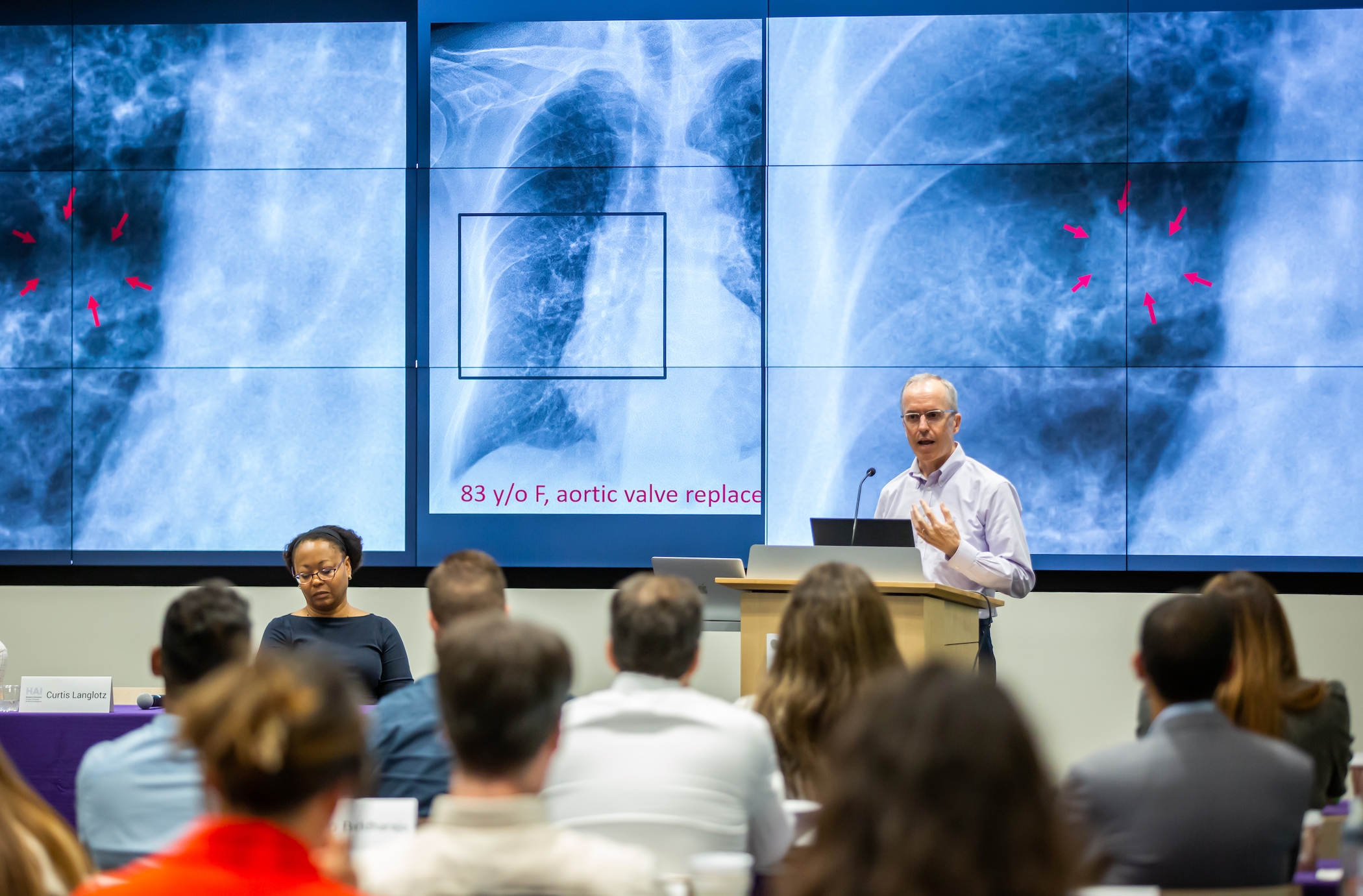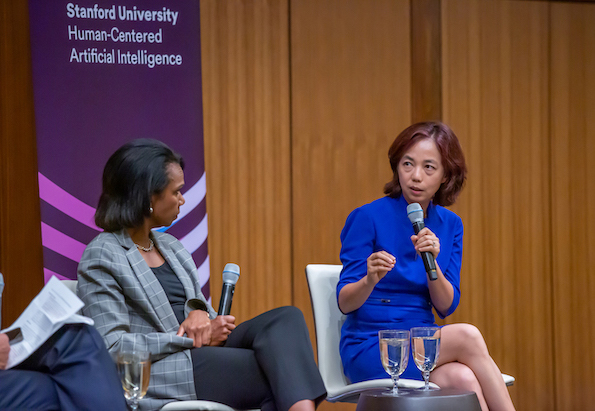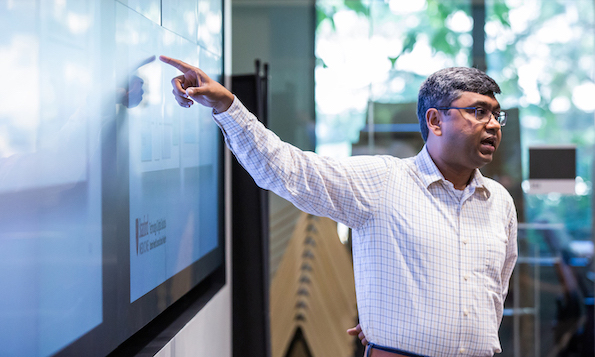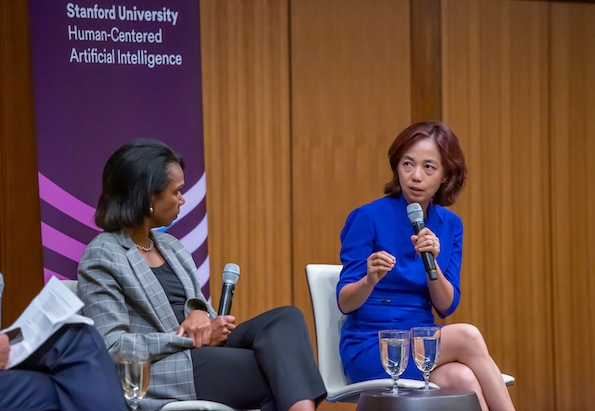Stanford HAI Brings Congressional Staff to AI School

To effectively regulate AI, Congress must first understand it. The Stanford HAI boot camp helped staffers think critically about this emerging technology.
Artificial intelligence is transforming economies, challenging legal and political norms, and reconfiguring society. Governments developing new regulations to navigate this era must adapt existing law, social safety nets, fiscal policies, and foreign affairs as this digital technology reshapes everything from labor markets to the global balance of power.
Yet rapid advances in the technology make regulating it all the more difficult. To help Congress keep up with the latest developments, the Stanford Institute for Human-Centered AI created a three-day boot camp for congressional staffers. Hosted on Stanford’s campus from Aug. 7-9, the workshop brought together 28 bipartisan staffers from both the House and Senate to learn from top academics on AI’s potential and to help them understand how to govern this emerging technology.
“This field is moving so quickly that it’s easy for policy analysts and others to get lost in the details,” said Russell Wald, Stanford HAI managing director of policy and society. “We brought together a multidisciplinary set of faculty and experts to help staffers understand the impact of AI on society from the perspectives of computer science, economics, law, medicine, political science, psychology, and a host of other disciplines.”
Over the course of three days, staffers from House and Senate offices and representing committees ranging from health to national security participated in 13 educational sessions, fireside chats, and in-person lab experiences covering AI risk, foundation models regulation, and the impact of AI on healthcare, education, climate, and online harm. Staffers also took part in an interactive, three-hour National Security Council simulation surrounding the deployment of AI in a crisis situation.

Sessions were led by Stanford University scholars as well as leaders from AI companies and civil society. Speakers included HAI Co-Director and computer scientist Fei-Fei Li, HAI Distinguished Scholar and Google researcher Peter Norvig, Hoover Institution Director Condoleezza Rice, Digital Economy Lab Director Erik Brynjolfsson, and Center for Research on Foundation Models Director Percy Liang.
"This conference was a unique opportunity to learn from the nation’s foremost experts on AI and engage in meaningful discussions around the latest technological advancements,” said participant Agbeko Petty, Counsel, House Committee on the Judiciary. “I left with a more nuanced understanding of AI’s potential and risks as well as the importance of governance in the digital age that promotes innovation, while ensuring fairness, accountability, and transparency. I’m grateful to HAI for organizing this conference. It is a remarkable opportunity that every congressional staffer should take advantage of.”

Stanford HAI launched the congressional boot camp in 2019 with 24 attendees. Since then, the program has grown - this year saw a 40% increase in applications, Wald said. Some past participants have moved on to broader roles in government. One attendee of the first year is now a member of Biden’s cabinet, Wald added, while others now have leadership positions at the National Institute for Standards and Technology and the Office of Science and Technology Policy.
In total, 76 congressional staffers have participated since the inaugural boot camp.
“The program has gained so much more interest in the past year as AI moves from fringe technology to mainstream,” said Daniel Zhang, senior manager for policy initiatives at Stanford HAI. “We hope all participants leave this experience with the conceptual framework needed to address the emerging technology landscape today and better anticipate the challenges of tomorrow.”
Learn more or apply for future policy boot camps. Learn more about Stanford HAI policy.
Stanford HAI’s mission is to advance AI research, education, policy and practice to improve the human condition. Learn more.

.jpg&w=256&q=80)
.jpg&w=1920&q=100)